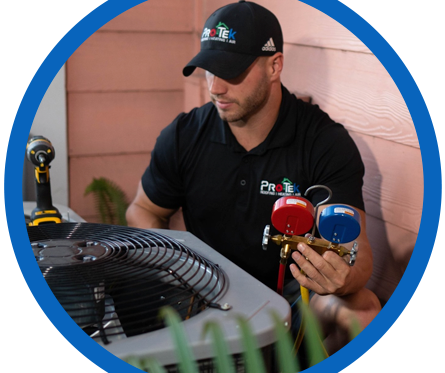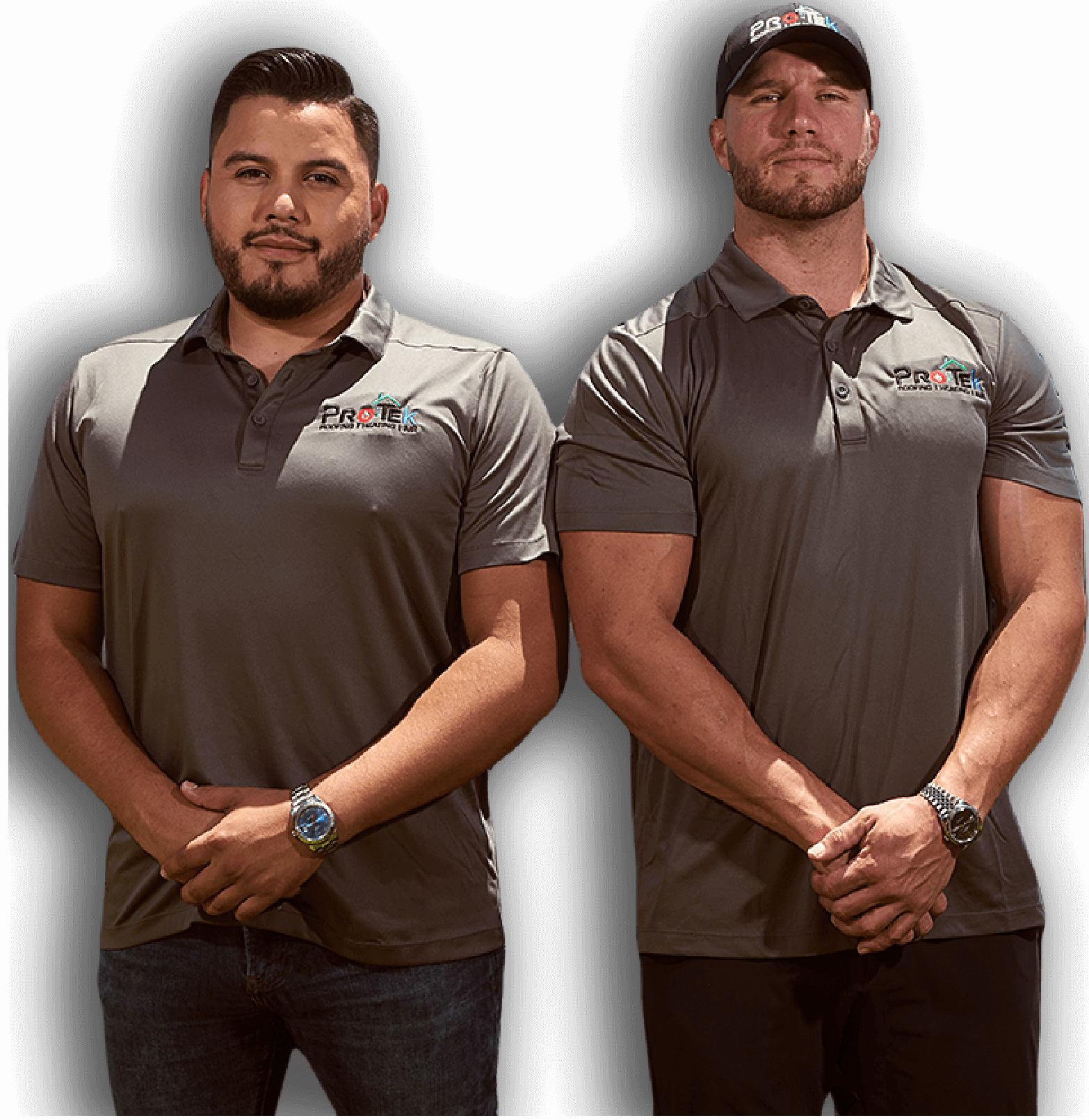Modern AC systems are complex pieces of engineering built to provide years of reliable service. That doesn’t mean they don’t need regular maintenance and occasional repair. There are some parts, like filters, that need periodic replacement. Other parts will simply wear out over time. One of the parts of an AC system that may fail with age or extended use is an AC capacitor. It’s a bit of an unsung hero within your AC system because, without it, your AC cannot function. Here’s everything you need to know about AC capacitors, including whether or not you can change one yourself.
What Is an AC Capacitor, Anyway?
Located within the compressor of your AC system, an AC capacitor is an electricity storage device. It’s like a battery, except that it’s not designed to provide steady power over long periods. Instead, an AC capacitor’s purpose is to deliver a short burst of high-voltage electricity when your AC compressor needs it. There are two types of AC capacitors found in today’s AC systems. They’re known as run capacitors and start capacitors.
The Purpose of Run Capacitors
The majority of modern AC systems have at least one capacitor built in, called a run capacitor. Its purpose is to store energy to keep the compressor fan turning at a steady rate. They’re necessary because of the high electrical demands of AC compressors. A run capacitor’s job is to compensate for the natural fluctuations in voltage coming from your home’s electrical wiring. Whenever there’s a dip in power, the run capacitor releases electricity to the compressor motor. The rest of the time, it stores electricity for later use.
The Purpose of Start Capacitors
As their name implies, start capacitors are a type of AC capacitor that provides power when your compressor turns on. They exist because compressor fans need considerable torque to begin turning. The voltage provided by the average home’s electrical wiring isn’t always enough to create it. So, the start capacitor provides a short, high-voltage burst to help the compressor fan start turning and get up to speed.
It’s worth pointing out that some AC systems contain a dual capacitor that takes the place of both a run and a start capacitor. They look and perform just like ordinary separate capacitors would. The only outward difference is that they have extra electrical terminals to provide power to the right parts of your compressor.
How to Tell When Your AC Capacitor Is Failing
No matter which type of AC capacitor your AC system has, the signs of a failed or failing AC capacitor are the same. Your AC capacitor could be to blame if:
- Your AC compressor doesn’t start when the rest of the system turns on
- Your AC system suddenly loses cooling power
- Your energy bills begin to rise unexpectedly
- You hear a humming noise when your compressor turns on
- Your compressor shuts down unexpectedly
- There’s a noticeable delay between your AC system turning on and the compressor turning on
The tricky part is that a failing AC capacitor isn’t the only thing that can cause the symptoms above. That’s why it’s a good idea to have a reputable HVAC service like Protek Roofing, Heating, Air & Solar diagnose your system to pinpoint the problem. Our expert technicians have the tools and knowledge necessary to locate your issue and rectify it immediately.
Fortunately, if your AC capacitor’s to blame, it’s a relatively simple problem to fix. Since they are not built to last forever, they’re always located where technicians can reach them. That means it’s typically not necessary to disassemble major parts of your compressor to replace one. Most of the time, the process of replacing a failed capacitor is straightforward and not very time-consuming. If all goes well, we can have your system back up and running in no time.
Why AC Capacitors Fail
The average lifespan of an AC capacitor is between 10 and 20 years. When one fails, age can play a role in it. But there are plenty of other things that can contribute to the failure of an AC capacitor.
The first thing that can cause an AC capacitor to fail is heat. If your AC system’s compressor sits in direct sunlight for much of the day, its AC capacitor could overheat. Exposure to direct sun can create operating temperatures of 150 degrees or more. Over time, that amount of heat can degrade a capacitor’s components and cause a failure.
Overuse can also lead to overheating of an AC capacitor. That’s quite common in situations where an AC system isn’t large enough for the space it’s trying to cool. And it can also happen when other components fail, leading to a loss of cooling power and forcing the compressor to work harder than it should.
Another common killer of AC capacitors is power surges. Even though capacitors store electrical energy, there’s a limit to how much incoming voltage they can handle. If the incoming voltage spikes, it could damage an AC capacitor and cause a sudden failure. Here in Tampa, lightning is a primary cause of such sudden power surges. So, if you live in Tampa or any other area that experiences frequent power outages or surges, an HVAC surge suppressor may be worth investing in.
Can I Replace an AC Capacitor Myself?
Since the process of replacing an AC capacitor seems so easy, plenty of people believe they can do it themselves. Doing so, however, is not a very good idea. AC capacitors store high-voltage electricity and they’re quite dangerous when handled improperly. A trained technician will know how to turn off the power to the compressor and discharge the capacitor before removing it. The average DIYer won’t have the knowledge and experience necessary to do so.
That makes changing out an AC capacitor on your own a risky proposition. You could wind up suffering a serious injury. Even if you don’t, you could end up damaging your AC system’s compressor. Then you’d have a much larger and more expensive problem on your hands.
The AC Capacitor Experts
The takeaway from all of this is that an AC capacitor is a simple device with a big job. Without it, your AC compressor can’t work. And while replacing a failed AC capacitor isn’t a big job, it’s not one you should try and tackle on your own. There’s too much that can go wrong, and it’s not worth the risk to your safety.
That’s especially true when you consider that the experts here at Protek Roofing, Heating, Air & Solar can easily handle the job for you. Our skilled technicians can diagnose issues with your AC capacitor and fix your AC right away. And we provide a wide array of other HVAC services to help you keep your HVAC system running at peak efficiency all year round.
There’s no better provider of HVAC, roofing, and solar power services in the greater Tampa, FL area. So, if you’re having problems with an AC capacitor or any other type of HVAC issue, contact Protek Roofing, Heating, Air & Solar today! We will be happy to schedule an appointment.




